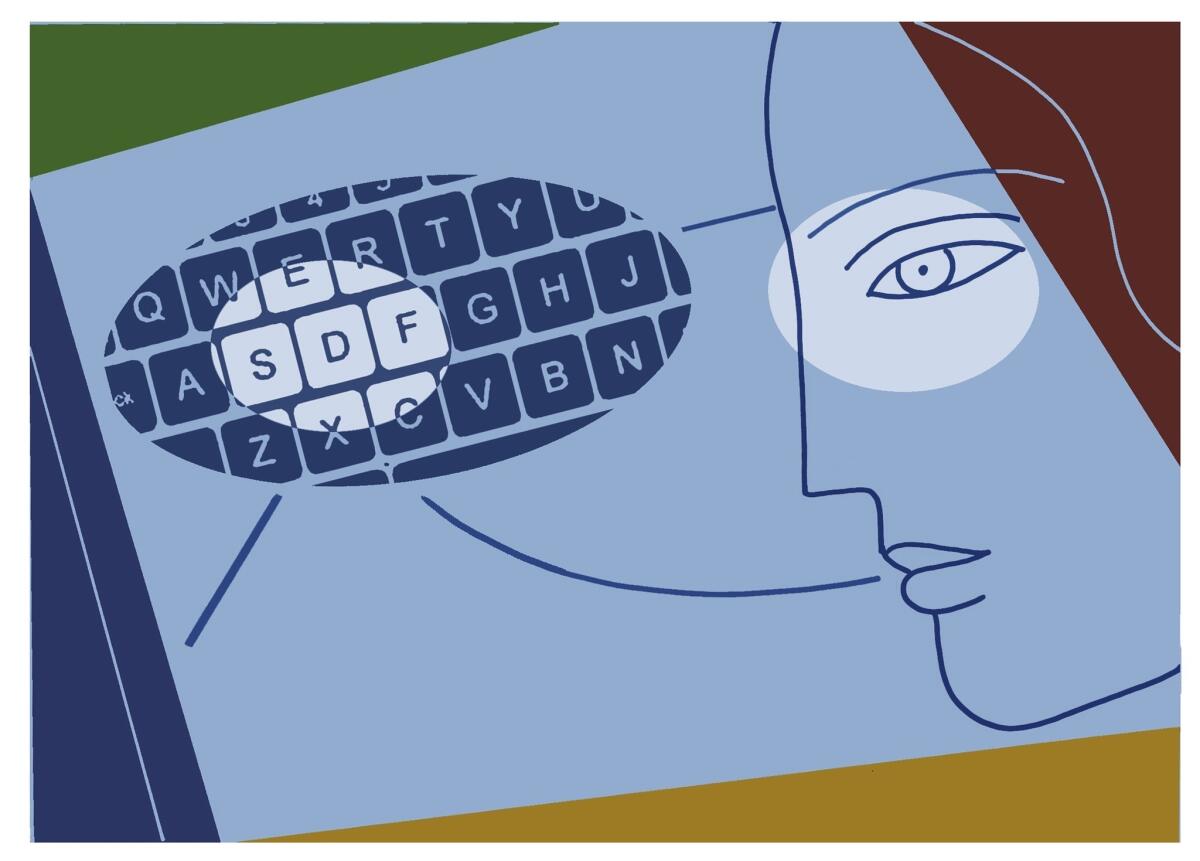Opinion: Technology’s feminist problem

- Share via
The New York Times ran a sob story last weekend about a woman who quit tech because she was shocked, shocked by the gross behavior of men in tech:
“Elissa Shevinsky can pinpoint the moment when she felt that she no longer belonged.
“She was at a friend’s house last Sept. 8, watching the live stream of the TechCrunch Disrupt hackathon on her laptop and iPhone. Entrepreneurs were showing off their products, and two young Australian men, David Boulton and Jethro Batts, stood behind the podium to give their presentation. ‘Titstare is an app where you take photos of yourself staring at tits,’ Mr. Boulton began, as photographs of women’s chests on a cellphone flashed on the screen behind him….
“Then things got worse. The next day, Pax Dickinson, who was her business partner in a start-up called Glimpse Labs, as well as the chief technology officer of the news site Business Insider, took to Twitter to defend the Titstare pair against accusations of misogyny….
“A few days after Mr. Dickinson’s ‘It is not misogyny’ tweet, she quit Glimpse.”
Well, well, it turns out, as conservative blogger Steve Sailer points out, that Shevinsky was scarcely the naive tech nerd that she presented herself as. Glimpse is a Snapchat-like app whose main function (granted, it must have some other functions) is to facilitate sexting.
The Glimpse app assures women who would like to send guys photographs of their chests (or other bodily regions) that those photos won’t be passed around. Glimpse scrambles the image if anyone tries to take a screenshot of it. As the Glimpse website puts it:
“So, yeah — we’re great for photos and videos that you want to share with someone special. We’re excited about all the different things we can express to each other when we know we’re not being overheard.”
Or, as Sailer puts it:
“As a commenter noted, although she may be getting tons of coverage in the New York Times for objecting to an app called TitStare, her own app could be called TitShow.”
Furthermore, Shevinsky, 35, seems to be quite the veteran of the crossroads where technology and love (or what passes for love) meet. Her LinkedIn profile indicates that she’s been the cofounder of several online dating apps and sites. Not that there’s anything wrong with that. But it does suggest that Shevinsky can scarcely represent herself as innocent of dating sites and their potential for technologically facilitating insta-sex and its variants. After all, the name of one of these now-defunct start-ups was MakeOut Labs, and Shevinsky’s standard publicity photo shows her grinning flirtatiously through a veil of hair over one eye.
So it does seem a mite hypocritical for Shevinsky to have gotten feministically huffy all of a sudden in this article she wrote for Business Insider shortly after quitting Glimpse:
“Seeing Titstare steal the show at the TC Disrupt Hackathon was an epiphany for me. Reasonable, professional, and non-sexist behavior should be an industry standard.
“I finally have to admit that pervasive brogramming and its inherent sexism is a problem.”
Just for starters, the TitStare “presentation” was a joke (a pretty funny one, actually) whose target, if anything, wasn’t women but horny guys (you can watch it here on Valleywag, whose writing staff is, or at least pretends to be, suitably outraged). There was, however, at least one child in the TechCrunch audience, and TechCrunch later apologized for TitStare and another off-color joke presentation.
Naturally the New York Times dutifully presented the Shevinsky incident as the reason why there are relatively few women in tech: “Brogramming” culture supposedly makes them feel out of place. No mention of the fact that most women don’t want to be in tech in the first place. They’re notoriously underrepresented in the college STEM fields that would qualify them to work as programmers or engineers. (It should be noted that according to Shevinsky’s LinkedIn profile, her own academic background is business, not tech.) But instead of focusing on the differences between the sexes that account for their career choices, the aim seems to be to impose the strident humorlessness of feminist ideology on all places where men work.
ALSO:
Want to prepare kids for the future? Teach them to code.
Handsome Rob Lowe says good-looking people have it tough. Please.
‘Game of Thrones’: Like Sherlock Holmes, will its fans love it to death?
Charlotte Allen writes frequently about feminism, politics and religion. Follow her on Twitter @MeanCharlotte.
More to Read
A cure for the common opinion
Get thought-provoking perspectives with our weekly newsletter.
You may occasionally receive promotional content from the Los Angeles Times.









